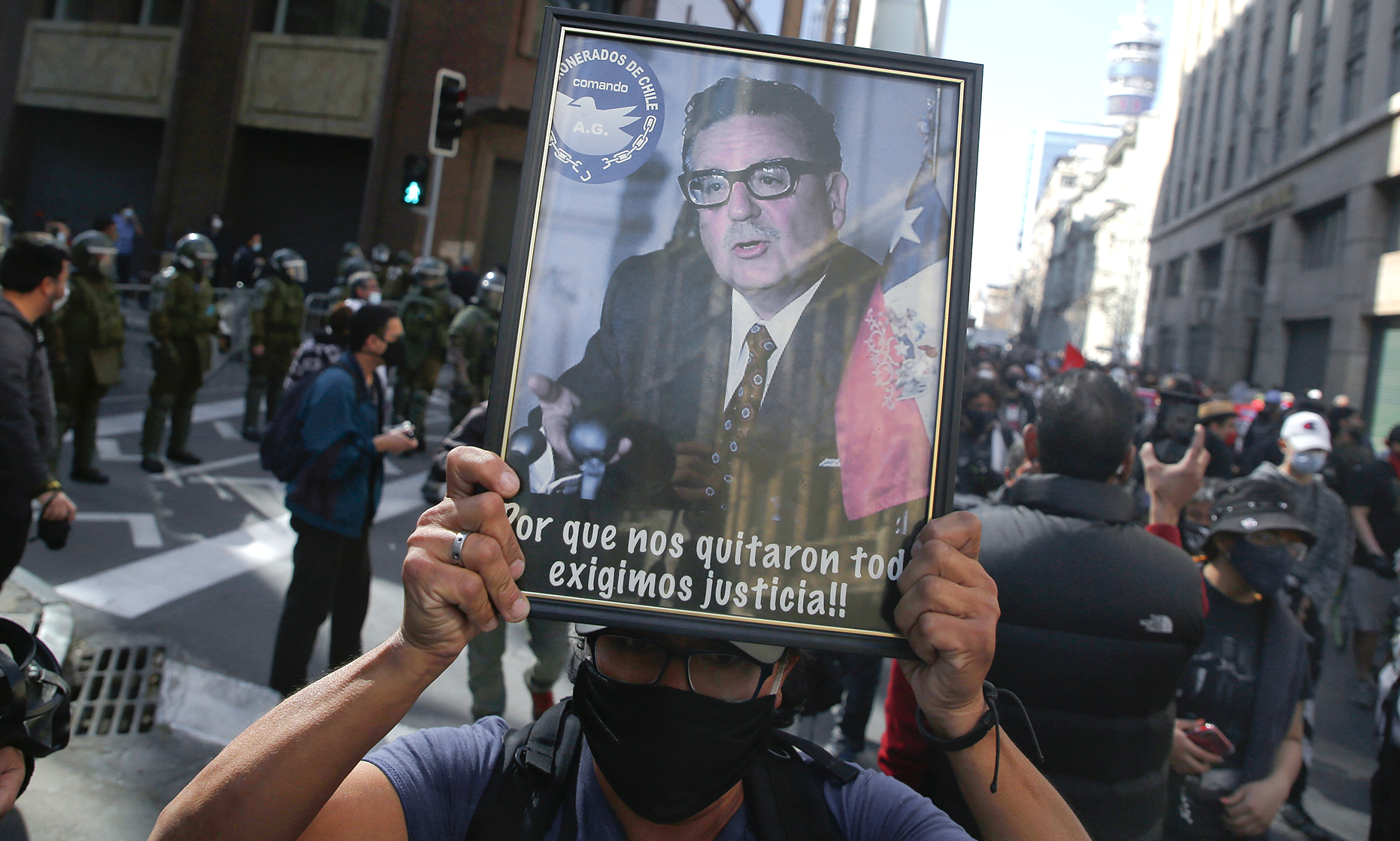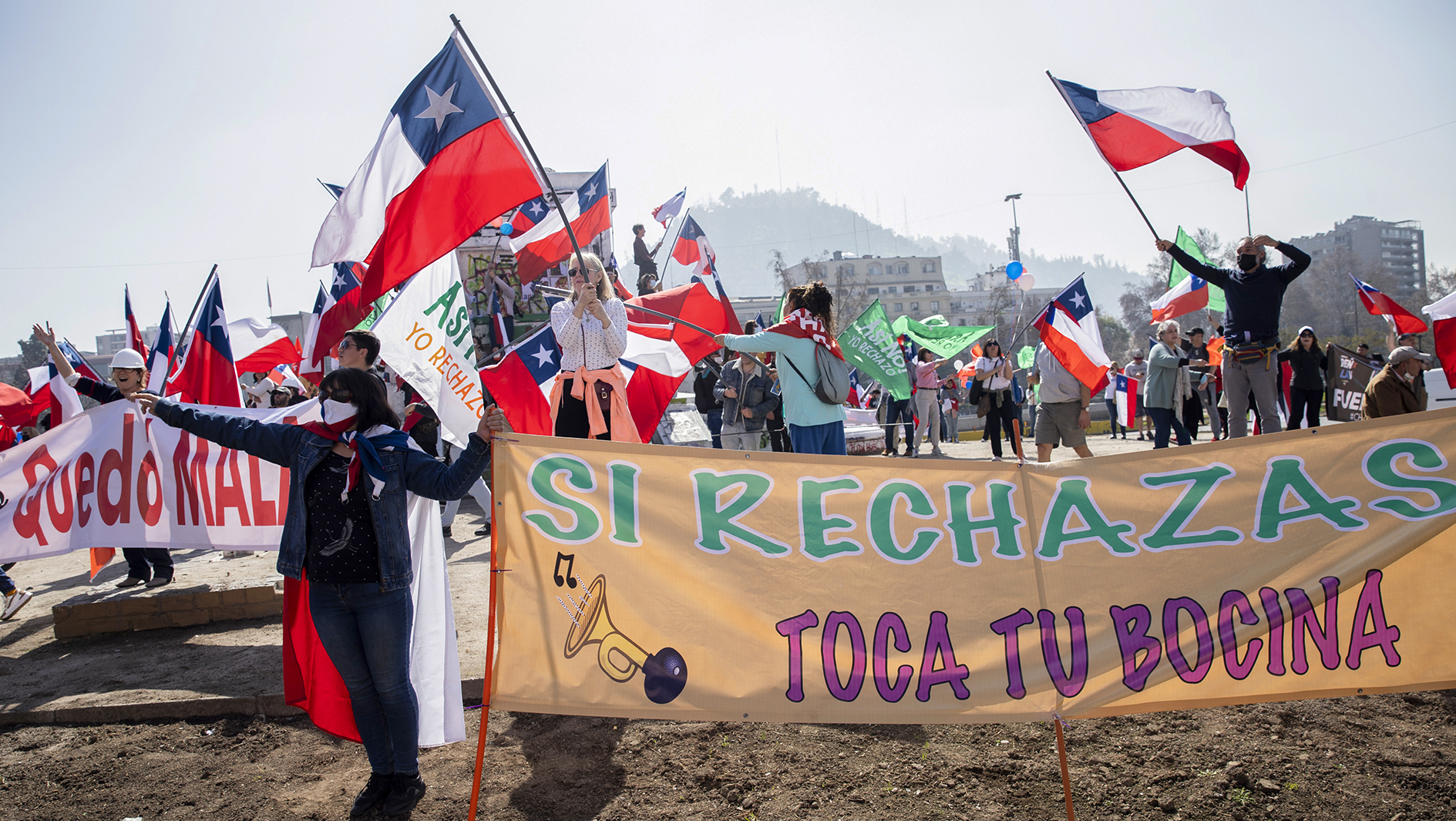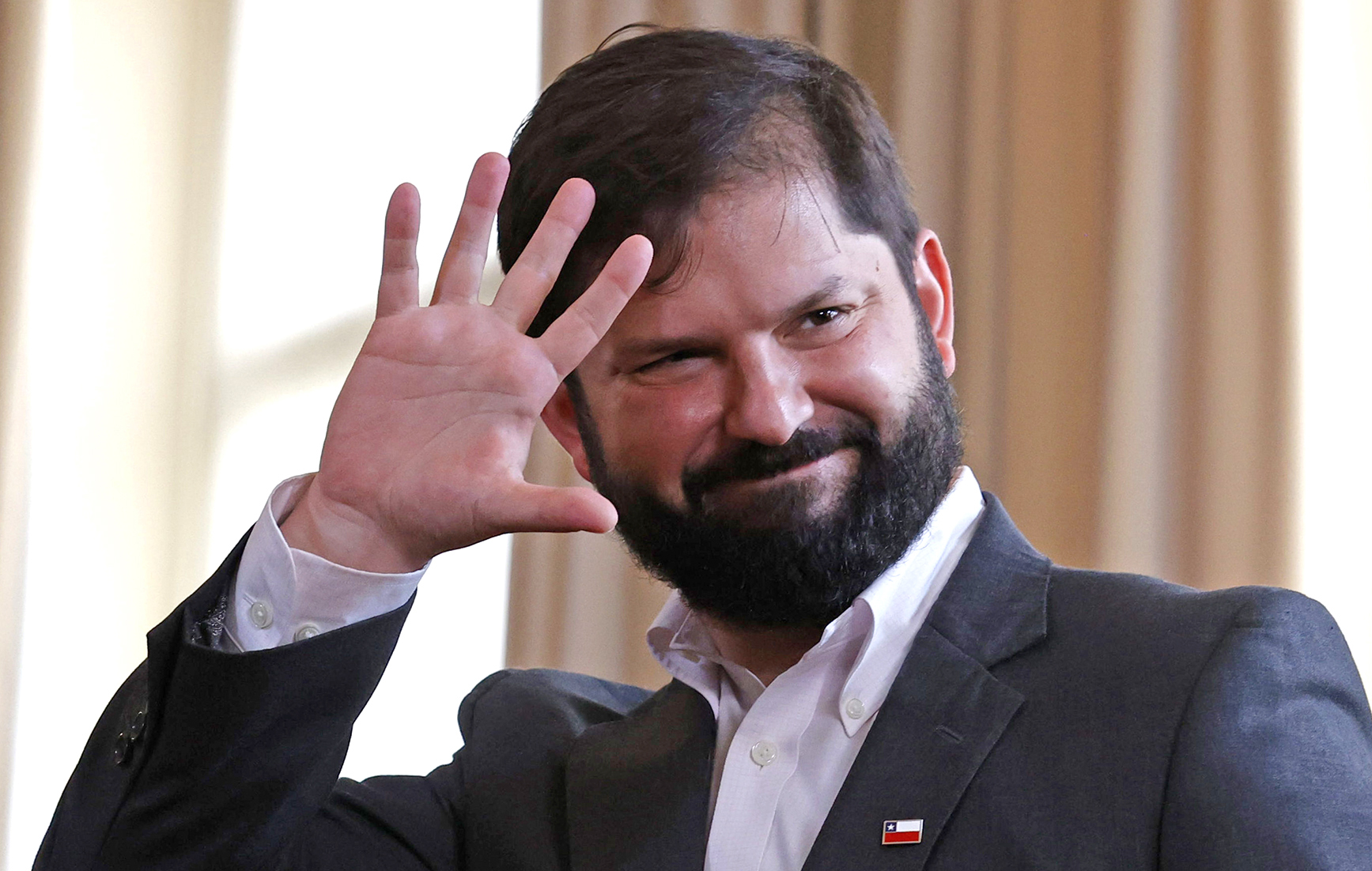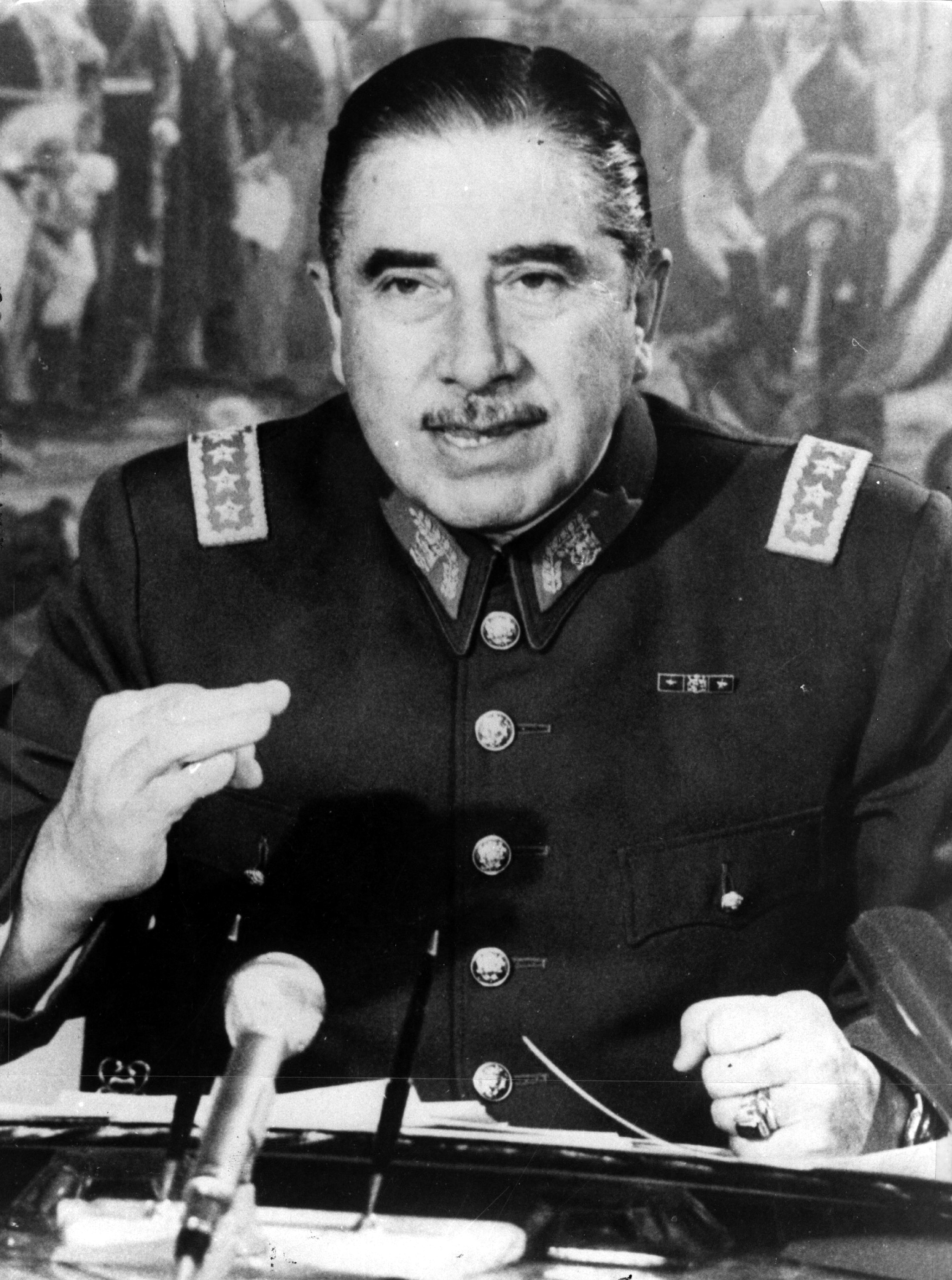CHILEAN REFORM OP-ED
Never again — world waits to see if Chileans will vote to say goodbye to Pinochet’s neoliberalism

On 4 September Chileans will vote in a referendum to signal their acceptance or rejection of their country’s proposed new constitution. A global call for solidarity with the Chilean constitutional process has been launched under the motto ‘Adios Neoliberalismo’.
Due to its global significance, Chile has been a global reference for political processes, social movements, intellectual debates and major transformations at different historical junctures.
For processes of democratisation Chile has had a strong impact on Latin America since its independence. The Chilean public health and education model has been an example for many countries in the region since the beginning of the 20th century.
The election of Salvador Allende in 1970 marked the beginning of what is known as the “Chilean road to socialism”. In the context of the culmination of the social struggles of the 1960s, this project showed the possibility of profound social change. This process was not only of interest to Latin America and the Caribbean, but also to various peoples of the global South and North.

A demonstrator holds a photo of former president Salvador Allende during a protest on the 47th anniversary of the last military coup that ousted President Salvador Allende on September 11, 2020 in Santiago, Chile. The military coup led by General Augusto Pinochet in 1973 imposed a dictatorship that lasted until 1990. (Photo: Marcelo Hernandez / Getty Images)
Augusto Pinochet’s coup d’état on 11 September 1973 marked a rupture with this project of democratic socialism, not only in Chile but — with few exceptions — in Latin America and the world. The authoritarian restoration of the civil-military dictatorship was accompanied by the installation of a neoliberal project that profoundly changed society. Chile became the laboratory and international reference point for the deployment of neoliberalism as an economic model and as an anti-social project.
Slow change from authoritarianism
Since 1990, the Chilean transition, driven by popular struggles and the plebiscite’s opposition to Pinochet’s continued power, has initiated a slow change in the authoritarian political culture without transforming the fundamental features of the neoliberal model.
Thirty years later, the proposal for a new constitution in Chile, emerging from a popular outcry in October 2019, represents the hope of not only overcoming authoritarian neoliberalism but also of offering creative and genuinely democratic responses to the multiple contemporary crises.

Dozens of people participate in a march to Plaza Italia in rejection of the next constitutional plebiscite, in Santiago, Chile, 20 August 2022. More than 15 million Chileans are called to the polls on September 4 to decide whether they want to approve the new Constitution or maintain the current one, inherited from the dictatorship of Augusto Pinochet (1973-1990) and partially reformed in democracy. (Photo:EPA-EFE / Alberto Valdes)
On 4 July 2022 Reuters reported: “Chile’s constitutional assembly handed over the final text of a proposed new constitution to president Gabriel Boric [today], finalising a year-long process to replace the country’s magna carta that dates back to the Augusto Pinochet dictatorship.”

The President of Chile Gabriel Boric participates in a press conference with his Colombian counterpart Gustavo Petro (out of frame) after a meeting at the Casa de Narino in Bogota, Colombia, 08 August 2022. (Photo: EPA-EFE / Mauricio Duenas Castaneda)
Visit Daily Maverick’s home page for more news, analysis and investigations
In comparative terms, the proposed constitution in Chile is one of the most democratic and advanced in the world. Thus, it is not only part of a process of reparation and repayment of a historical debt to the Chilean people, but also a bet on a democratic, ecological and solidarity-based future that can inspire the necessary constitutional reforms in other regions of the world, which will allow the survival of the planet and the coexistence of humanity.
Celebration of democracy
In this regard, we emphasise the following aspects:
- The process has been a celebration of democracy. Contrary to the current constitution, drafted by the military dictatorship, this proposal has been written by a constitutional convention of the Chilean people in its great diversity. The constitutional text echoes the phrase nunca más! (never again) to an authoritarian regime and the violation of human rights.
- From its first article, the new constitution sends an inspiring message even beyond its borders, when it declares that “Chile is a social and democratic state under the rule of law. It is plurinational, intercultural, regional and ecological. It is constituted as a republic of solidarity. Its democracy is inclusive and based on parity. It recognises as intrinsic and inalienable values the dignity, freedom and substantive equality of human beings as well as their indissoluble relationship with nature.
- The new constitution not only redefines the Chilean state, but also proposes elements to democratically rebuild the social fabric. It defines the social rights of its citizens and communities. This includes the right to care that encompasses the entire life cycle from birth to death.
- This new constitution is the first in the world to establish the principle of gender parity in public office. It also recognises the diversity of genders and sexualities and their corresponding individual rights and forms of coexistence.
- This new constitutional text not only recognises but celebrates diversity, protecting both individual and collective rights. By defining the state as plurinational, intercultural and multilingual, it echoes one of the main demands of Afro-Chileans and indigenous peoples and nations, whose territorial autonomies are recognised. Granting more rights for those excluded from history consolidates the rights of society as a whole in terms of equity, equality and justice.
- This autonomous orientation is also expressed at different levels for citizens in general as well as in proposals for the decentralisation of the country, for example in the establishment of a chamber of regions to replace the oligarchic senate.
- The constitution affirms basic labour rights such as free association, strike and collective bargaining.
- Chile is also the first state in the world to define itself, in its first constitutional article, as ecological. This claim is supported not only by environmental rights but also by the rights of nature, explicitly including animal rights.
In institutional terms, the 1980 constitution has been the bulwark of neoliberalism and authoritarianism in Chile. Overcoming the Pinochet constitution is an essential step towards a dignified future for all the people of Chile.

Chilean soldier and politician, Augusto Pinochet Ugarte. In 1973 he led a coup which ousted, and resulted in the death of, the Marxist President, Salvador Allende. Pinochet then took over the presidency. (Photo: Keystone / Getty Images)
Blazing a trail
With the proposal of the new constitution, two great steps have been taken — firstly, towards the overcoming of the authoritarian legacy of the Pinochet dictatorship. But, beyond this, the new constitution is a response of Chilean society to the most urgent problems of humanity and a bet on an ecological, dignified and solidarity-based future.
The plebiscite of 4 September 2022 on the approval or rejection of the conventional proposal of the constitutional convention is a milestone in the global history of democracy. For this reason, an international sign-on letter (available here) has been written expressing strong support for the approval of the new constitution in Chile. Rejection (rechazo) would be a rejection not only of Chilean democracy but of the emancipatory processes underway in Latin America and the whole world.
In contrast, approval (apruebo) will be, no doubt, a starting point to widen and deepen the emancipatory perspectives in Chile and in the whole world. DM/MC
Alberto Acosta is an Ecuadorian economist. Former Minister of Energy and Mines (2007) and President of the Constituent Assembly of Ecuador (2007-2008).
Ulrich Brand is Professor of International Politics and Academic Director of the Latin American Studies Group at the University of Vienna in Austria.
Claudia Briones is an Argentinean Anthropologist at the National University of Río Negro.
David Diaz Arias is a full-time professor and director of the Center for Historical Research of Central America (Cihac) at the University of Costa Rica.
Olaf Kaltmeier is Professor of Iberoamerican History at the University of Bielefeld in Germany and Director of the Maria Sibylla Merian Center for Advanced Latin American Studies (Calas).
Mara Viveros Vigoya is full-time Professor at the School of Gender Studies at the National University of Colombia.




















 Become an Insider
Become an Insider
Comments - Please login in order to comment.